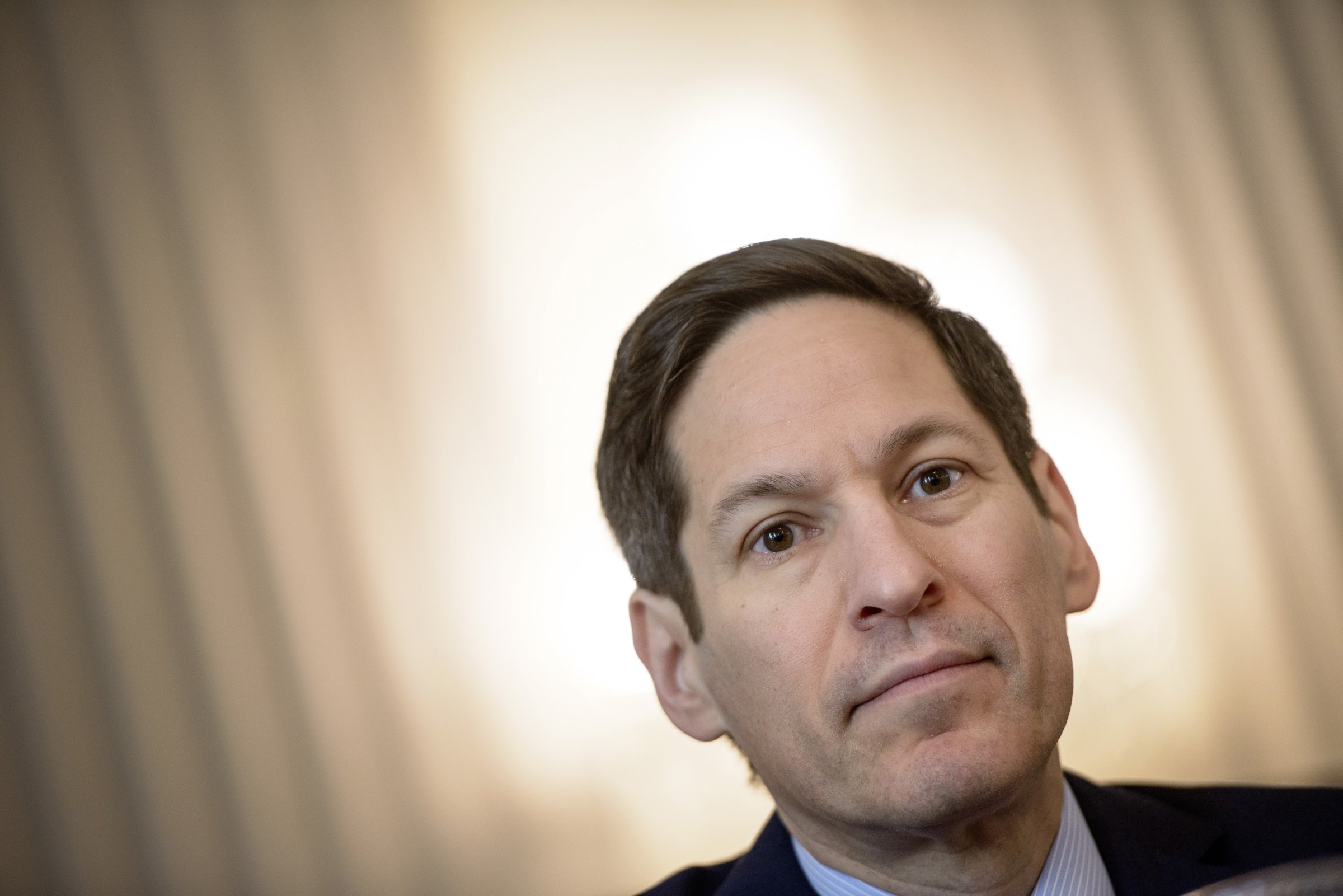
Tom Frieden, M.D., M.P.H., is director of the Centers for Disease Control and Prevention
Every four minutes, somewhere in the world, a child dies from measles and its complications. That’s 400 children each day. For many more, an infection from measles will give them permanent hearing loss or brain damage.
In the U.S., it can be easy to forget how serious measles can be. We simply don’t see that many cases here.
But measles is one of the most contagious diseases known. It’s so easily spread that if one person has it, 9 of 10 people close to that person who are not immune will also become infected.
Now the U.S. is facing a measles outbreak. It started in Southern California in December and has spread to several states and Mexico. By the end of January, more than 100 people had been reported as having gotten measles as part of this outbreak. This number is increasing daily.
We don’t know for sure how this outbreak began, but it’s likely that someone got infected with measles overseas and then brought measles to the U.S. and spread it to others. Nearly 90% of the people getting measles in this outbreak are not vaccinated or don’t know if they are vaccinated.
A family vacation, lunch out with friends or a trip to the doctor or grocery store should not be the reason children become sick from a disease that’s almost entirely preventable.
And one thing about measles: it is so remarkably infectious that you can’t protect yourself. You can get it just from being in a space where a person not yet very ill with measles left two hours ago, or in an auditorium with just one measles patient many seats away from you.
Measles would be a far greater threat in the U.S. if it weren’t for the measles vaccine, which has now been successfully used for more than 50 years.
It’s widely administered through childhood immunization programs around the world. In the past 14 years alone, it has been given to more than 2 billion people worldwide. Since 2001, a global partnership that includes the CDC has vaccinated more than 1 billion children. In that time, these vaccinations have prevented more than 15 million deaths. The worldwide effort to prevent deaths from measles is leaving behind trained people, refrigerators for cold storage of vaccines and patterns of vaccination that will continue to make the world more secure.
Fifteen years ago measles transmission in the U.S. was declared over. But as this current outbreak shows, unvaccinated people can get measles while they are abroad and bring it to the U.S. They can spread it to others and cause outbreaks.
We can prevent another outbreak from occurring through some simple steps.
First, doctors can make sure all their patients are up to date on their MMR shots — which protect against measles as well as mumps and rubella — and other vaccines. If your children are sick with a fever, keep them at home. Or if you are sick with a fever, stay home. This protects others and works just as well whether the diagnosis is measles or flu or something else. This measles outbreak is also a reminder that adults should make sure their vaccinations are up to date. If you’re not sure, talk with your doctor, particularly prior to overseas travel.
Second, if their patients will be traveling abroad, they should make sure anyone 6 months or older receives the appropriate dose or doses of vaccine.
Third, doctors should consider a measles diagnosis in anyone who has a fever and rash and associated symptoms such as cough, irritated eyes or a runny nose. It can take anywhere from seven to 20 days after exposure before these symptoms appear. A patient with these symptoms should be isolated, specimens should be collected for testing, and the case should be reported to the local health department immediately.
Fourth, we need to increase vaccination rates, particularly in areas where parents are choosing not to vaccinate their children. We are not islands. If your child gets measles because he or she hasn’t been vaccinated, infection of a child with cancer or an infant can occur, with results that can be devastating. Understandably, many parents think that measles is a disease of the past. But unless we increase vaccination rates, it will be a disease of the future.
More Must-Reads from TIME
- Inside Elon Musk’s War on Washington
- Meet the 2025 Women of the Year
- The Harsh Truth About Disability Inclusion
- Why Do More Young Adults Have Cancer?
- Colman Domingo Leads With Radical Love
- How to Get Better at Doing Things Alone
- Cecily Strong on Goober the Clown
- Column: The Rise of America’s Broligarchy
Contact us at letters@time.com